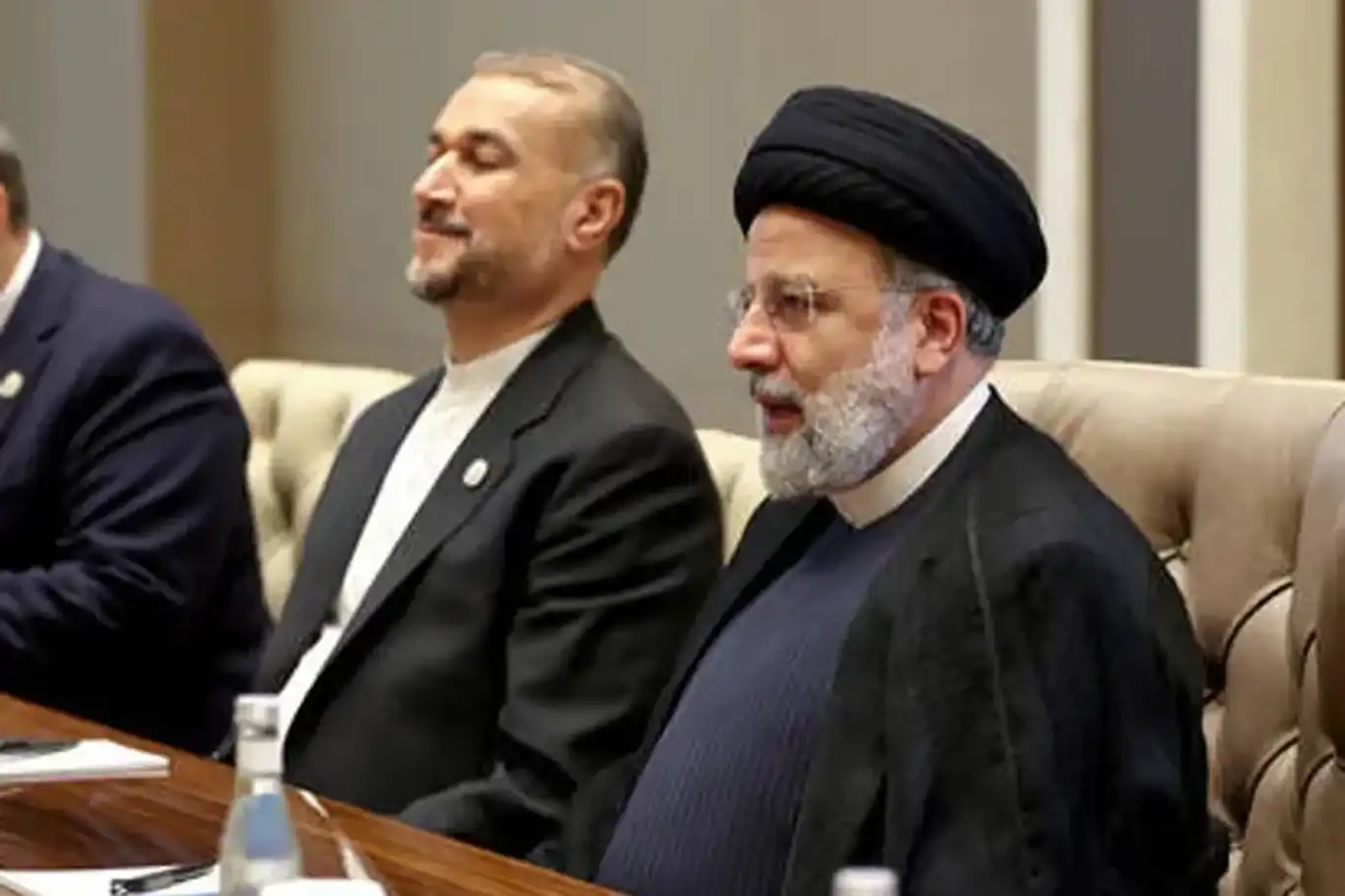Iranian President Ebrahim Raisi killed in helicopter crash near Azerbaijan border


Iranian President Ebrahim Raisi was killed in a helicopter crash near the Azerbaijan border, officials and state media confirmed on Monday.
The helicopter, carrying Raisi and Foreign Minister Hossein Amirabdollahian, crashed on Sunday in mountainous terrain. The wreckage was discovered early Monday after an overnight search amid blizzard conditions.
"President Raisi, the foreign minister, and all the passengers in the helicopter were killed in the crash," a senior Iranian official stated. Raisi's death was later confirmed by Vice President Mohsen Mansouri on social media and by state television.
State TV reported that images from the crash site showed the aircraft had slammed into a mountain peak, though the cause of the crash remains unclear. The state news agency IRNA identified the helicopter as a U.S.-made Bell 212.
Supreme Leader Ayatollah Ali Khamenei reassured the nation, stating there would be no disruption to state affairs despite Raisi's death.
Rescue teams battled severe weather and difficult terrain throughout the night to locate the wreckage. "With the discovery of the crash site, no signs of life have been detected among the helicopter's passengers," said Pirhossein Kolivand, head of Iran’s Red Crescent, on state TV.
The national broadcaster halted regular programming to show prayers being held for Raisi across the country, reflecting the profound impact of his sudden death on the nation.
Rescue teams fought blizzards and difficult terrain through the night to reach the wreckage in the early hours of Monday.
“With the discovery of the crash site, no signs of life have been detected among the helicopter's passengers,” the head of Iran’s Red Crescent, Pirhossein Kolivand, told state TV.
Earlier, the national broadcaster had stopped all regular programming to show prayers being held for Raisi across the country.
Born on December 14, 1960, in Mashhad, Iran, Ebrahim Raisi rose through the ranks of the judiciary to become a prominent political figure. He studied at the Qom Seminary, where he was a student of several high-ranking clerics. Raisi held various key judicial positions, including the Deputy Chief Justice of Iran and the Attorney General of Iran. He gained a reputation for his hardline stance and conservative views.
In 2019, Raisi was appointed Chief Justice of Iran by Supreme Leader Ayatollah Ali Khamenei. He ran for president in 2021 and won, taking office in August of that year. His presidency has been marked by a crackdown on dissent, stringent enforcement of morality laws, and tough negotiations in Iran’s nuclear talks with world powers.
Raisi's political career has not been without controversy. He has been criticized internationally for his role in the 1988 mass executions of political prisoners in Iran, which has cast a long shadow over his tenure in public office. (ILKHA)
LEGAL WARNING: All rights of the published news, photos and videos are reserved by İlke Haber Ajansı Basın Yayın San. Trade A.Ş. Under no circumstances can all or part of the news, photos and videos be used without a written contract or subscription.
The United Nations World Food Programme (WFP) has announced a major scale-up of emergency operations to deliver life-saving food and nutrition assistance to more than 210,000 of the most vulnerable people displaced by renewed violence in eastern Democratic Republic of the Congo (DRC).
Senior officials from Türkiye and Azerbaijan have reaffirmed their commitment to deepening economic cooperation and significantly expanding bilateral trade and investment during the 2nd Azerbaijan–Türkiye Investment Forum held in Baku.
Sudan’s prime minister has presented a comprehensive plan to end the country’s nearly three-year war to the United Nations Security Council (UNSC), urging world powers to support the initiative as violence continues across several regions, including Kordofan and North Kordofan states.
The Ambassador of Afghanistan, Mohammad Suhail Shaheen, met with Witold Sobków, Poland’s Special Envoy for Afghanistan, in the Qatari capital Doha, according to a statement issued by the Embassy of the Islamic Emirate of Afghanistan.